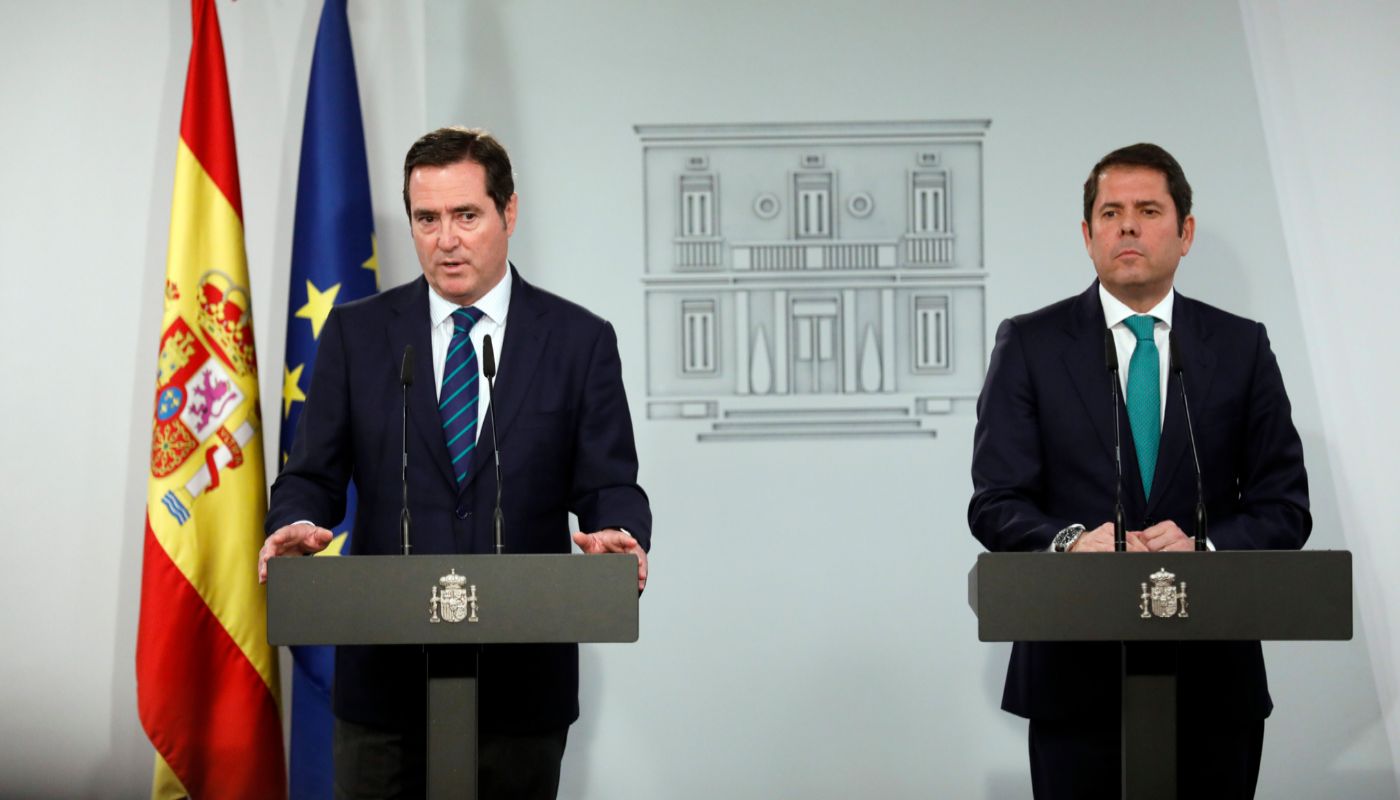The announcement by the President of the Government, Pedro Sánchez, that he will decree a stoppage of non-essential services activity, imposing that companies continue to pay wages "normally", has encouraged business organizations.
Leaders of CEOE consulted assure that they respect the Health recommendations and that health must be put before other considerations, but that, being force majeure, companies should not bear the costs. "This has to be paid by the State, "they agree. " If they legally impose the suspension of the activity, they must bear the costs," says a business leader. "It is unheard of," says another. In addition, they point out that it is necessary to clear up unknowns such as the services that are considered essential and the auxiliaries to these that must continue to function. "We also have to see if workers who are already teleworking can take advantage of this recoverable paid leave," they say.
The Prime Minister explained that between March 30 and April 9 non-essential service workers must stay at home with the aforementioned recoverable paid leave so that the hours they lose must be recovered at another time in their companies " gradually and spaced over time . "
Sánchez has assured that he has informed the social agents, both employers and unions, but without trying to agree with them on the conditions. The government's relations with businessmen have been straining very noticeably in the last hours. This measure follows that of last Friday in which the Minister of Labor, Yolanda Díaz, announced "the impossibility" of dismissing in Spain during this coronavirus crisis. In the Decree Law published this Saturday in the Official State Gazette, the door is open for companies in crisis to be able to do without personnel, but in the form of unfair dismissal with the most expensive compensation.
According to the consulted leaders, the set of decisions of the last days, "condemns companies, especially small and medium-sized companies" and recalls that in order to make temporary employment adjustments, the Government requires maintaining the staff for six months, which the President himself CEOE, Antonio Garamendi, described as "complicated" in an interview in EL MUNDO last Friday. For his part, the president of Cepyme, Gerardo Cuerva, has warned that there are already half a million SMEs that fear the final closure of their business due to the crisis and the lack of relief measures. Garamendi has defended until the last minute that there was no total confinement. "The country cannot be stopped, we are risking recovery," he told this newspaper. In his opinion, the more activity is paralyzed, the longer the recession will be and the more difficult it will be to re-create jobs, if, in addition, staff adjustment measures are made more difficult in these weeks of falling earnings.
For their part, the unions have accepted the measure without objection.
In a joint statement CCOO and UGT support the decision to stop the coronavirus and stressed that people who work in essential activities must have "all the necessary protective measures to guarantee their safety and health . "
CCOO and UGT assure that they will negotiate the recovery of hours lost in the coming weeks with the principle that "it is essential to save jobs and save companies."
According to the criteria of The Trust Project
Know more- Yolanda Diaz
- Spain
- Pedro Sánchez
- job
- CCOO
- UGT
- CEOE
Blow to the industryInternal alert in the big company for the coronavirus: "Lack of supplies in 2-3 weeks and closure of factories"
LABOR The Government asks companies to stop their activity if they detect an outbreak of coronavirus
Shock plan Companies and unions ask Sánchez for a new law for express and retroactive job suspensions

